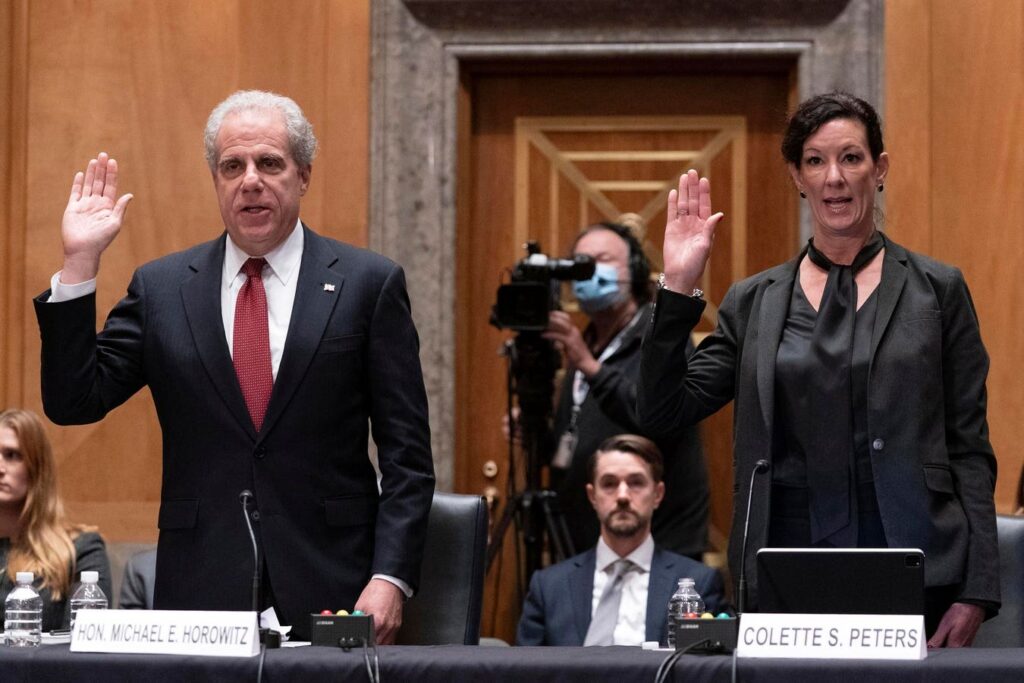Out With The Old
With the return of the Trump administration, policy attention has largely focused on tariffs, immigration, reducing government spending, and dismantling DEI initiatives. Each of these has been backed by visible public messaging and leadership—except when it comes to the Federal Bureau of Prisons. Despite overseeing an $8.3 billion budget, 36,000 staff members, and roughly 160,000 incarcerated individuals across 121 correctional facilities, the BOP has received only cursory attention.
Since the abrupt firing of former BOP Director Colette Peters in January, the agency has faced mounting turmoil. In the span of five weeks, the BOP and the Trump administration have moved to dismantle the union representing correctional staff, eliminated retention bonuses, cut back on halfway house placement eligibility, and slashed spending in ways that suggest a financial crisis. Two months on, the BOP remains without a permanent or acting director, and frustrations are boiling over. The consequences of these changes have rippled into the inmate population. Many minimum and low-security inmates recently learned they would not be transitioning to halfway houses due to budget cuts, resulting in extended incarceration despite being eligible for earlier community placement. This contradicts both the Second Chance Act and First Step Act, laws passed by Congress to ease institutional overcrowding, promote reentry, and reduce costs tied to outdated prison infrastructure.
With 121 facilities scattered across the country, communication from BOP leadership to staff has been disjointed. The agency has yet to fully implement the First Step Act—ironically, a Trump-era initiative. Meanwhile, both inmates and staff are grappling with food shortages, extended lockdowns, canceled visitation, contraband-related restrictions, and a complete lack of clarity about upcoming policy changes. Morale has sunk, and the agency’s direction remains unclear.
The Good Ole Days
Since peaking at over 200,000 inmates in 2013, the BOP population has dropped by roughly 50,000, yet its budget has increased each year. Many long-serving staff remember a time when the agency ran with more cohesion, and morale was far better.
Joe Rojas, a retired BOP officer and past president of AFGE Council 33 at FCC Coleman, spent nearly 30 years in the system and now works recruiting new union members. Reflecting on his time, he described a loss of camaraderie and a sense that the agency no longer functions as it once did. Rojas emphasized the personal reward of helping inmates improve themselves, particularly through education. “But today,” he said, “I just don’t see it.”
Concern Over Privatization
At FCI Mendota in California, AFGE Council 33 President Aaron McGlothin described the current atmosphere as “the Wild West.” In the absence of centralized leadership, McGlothin says staff are being subjected to increasingly chaotic directives. The Warden recently announced mandatory “blackout dates,” during which professionals such as nurses, psychologists, and administrative staff will be forced to serve as correctional officers to cover staffing shortages. McGlothin believes these steps are designed to undermine union strength.
There’s also growing concern about the possible resurgence of private prisons. McGlothin pointed out that Attorney General Pamela Bondi previously lobbied for the GEO Group, a private prison company, and staff are increasingly worried about losing jobs to privatization. Union dues are now being rerouted to personal bank accounts in anticipation of payroll deductions for dues being cut—another sign of looming anti-union policies.
While McGlothin acknowledges that the BOP’s costs include mandated rehabilitative programming that private prisons often don’t offer, he fears those standards may erode. “We’re well trained and good at what we do,” he said. “Private facilities just warehouse people and provide subpar services.” For McGlothin, the path forward must involve appointing a director who understands the agency from the ground up—someone “pro-staff” with a career rooted in BOP experience.
Request For Congressional Intervention
At FCI Thomson in Illinois, AFGE Council 33 President Jon Zumkher reported a staffing crisis that has pushed the facility to its breaking point. Of 125 open positions, 97 are for correctional officers. The loss of retention bonuses has worsened the exodus of staff, forcing the institution to rely on “augmentation”—a stopgap measure requiring non-custody staff like teachers and nurses to serve as correctional officers.
This emergency response has led to the suspension of crucial programming under the First Step Act and a significant reduction in visitation and rehabilitation efforts. Once considered a model facility, Thomson is now emblematic of the BOP’s wider collapse. Zumkher has been in direct communication with members of Congress, including Senator Tammy Duckworth and Representatives Eric Sorensen and Mariannette Miller-Meeks, all of whom have visited the facility.
Zumkher has pleaded for immediate congressional intervention, warning that the agency’s strategy of lockdowns and visitation restrictions is failing to address the real crisis: dangerously low staffing levels and plummeting morale.
Turning the BOP around will require transformative leadership—and it needs to happen now.
Read the full article here

